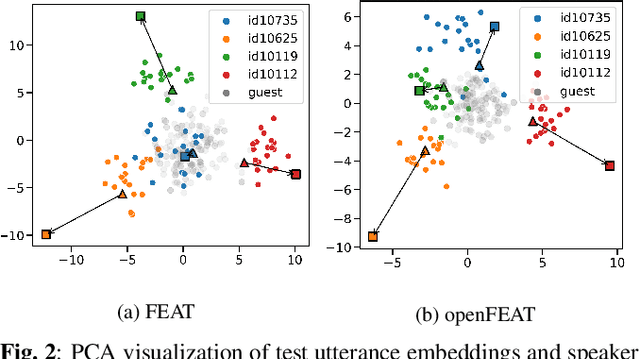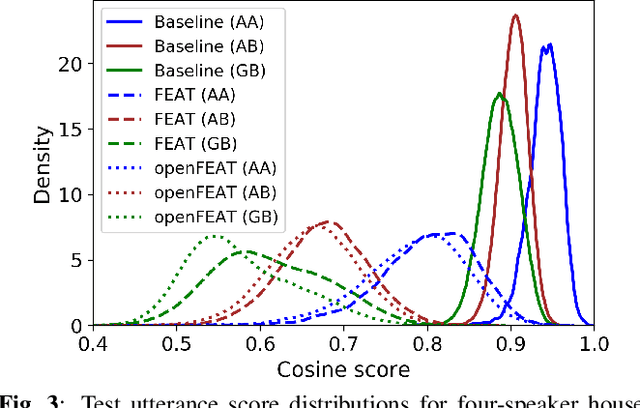openFEAT: Improving Speaker Identification by Open-set Few-shot Embedding Adaptation with Transformer
Paper and Code
Feb 24, 2022



Household speaker identification with few enrollment utterances is an important yet challenging problem, especially when household members share similar voice characteristics and room acoustics. A common embedding space learned from a large number of speakers is not universally applicable for the optimal identification of every speaker in a household. In this work, we first formulate household speaker identification as a few-shot open-set recognition task and then propose a novel embedding adaptation framework to adapt speaker representations from the given universal embedding space to a household-specific embedding space using a set-to-set function, yielding better household speaker identification performance. With our algorithm, Open-set Few-shot Embedding Adaptation with Transformer (openFEAT), we observe that the speaker identification equal error rate (IEER) on simulated households with 2 to 7 hard-to-discriminate speakers is reduced by 23% to 31% relative.
 Add to Chrome
Add to Chrome Add to Firefox
Add to Firefox Add to Edge
Add to Edge